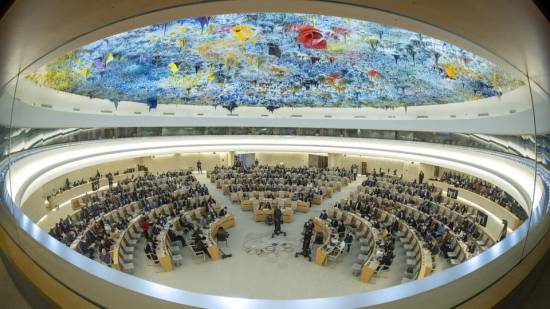China touts 'victory' after UN council rejects debate on Xinjiang Uighurs Featured
The UN Human Rights Council has voted against debating alleged abuses in China's Xinjiang Uighur Autonomous Region, in a heavy setback for Western nations.
In a moment of knife-edge drama on Thursday, countries on the 47-member council in Geneva voted 19-17 against holding a debate on human rights in Xinjiang, with 11 nations abstaining.
"This is a victory for developing countries and a victory for truth and justice," tweeted Chinese Foreign Ministry spokesperson Hua Chunying.
The United States and its allies last month brought a draft decision targeting Beijing to the UN's top rights body, seeking as a bare minimum a discussion on Xinjiang.
The move came after former UN rights chief Michelle Bachelet released her long-delayed report, citing possible crimes against humanity against Uighurs, an ethnic Turkic nation, and other Muslim minorities in the far-western region.
"The United States condemns today's vote preventing a discussion about Xinjiang," US ambassador to the council Michele Taylor tweeted.
Inaction "shamefully suggests some countries are free from scrutiny and allowed to violate human rights with impunity".
Amnesty International branded Thursday's vote farcical, while Human Rights Watch (HRW) said it betrayed abuse victims.
China says 'Western plot failed'
Washington and some Western countries have used Xinjiang "to spread rumours and cause trouble, engaging in political manipulation under the guise of human rights, attempting to smear China's image," a Chinese Foreign Ministry spokesperson said in a statement.
"The plot by the US and some Western countries has once again failed.
"Xinjiang-related issues are fundamentally not human rights issues, but are counter-terrorism, deradicalisation and anti-separatism issues."
The nations voting against a debate were Bolivia, Cameroon, China, Cuba, Eritrea, Gabon, Indonesia, Ivory Coast, Kazakhstan, Mauritania, Namibia, Nepal, Pakistan, Qatar, Senegal, Sudan, the United Arab Emirates, Uzbekistan and Venezuela.
Argentina, Armenia, Benin, Brazil, The Gambia, India, Libya, Malawi, Malaysia, Mexico and Ukraine abstained.
The draft decision was put forward by the United States, Australia, Canada, France, Germany, Norway, Sweden and Türkiye, among others.
One Western diplomat stressed that regardless of the outcome, "the number one objective has been fulfilled" in putting Xinjiang in the spotlight.
Source: AFP


